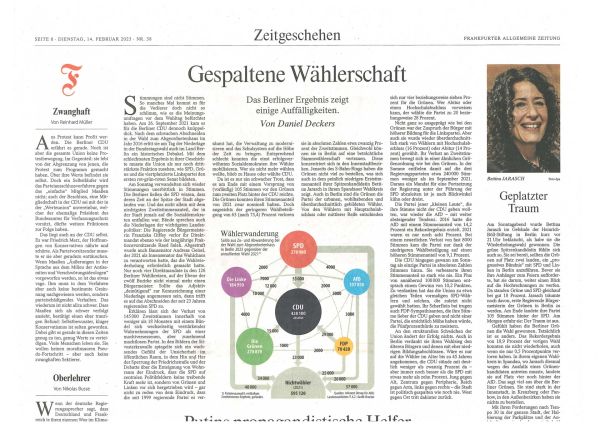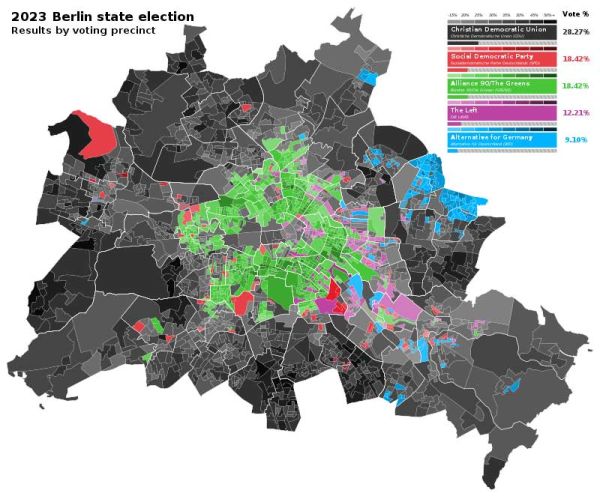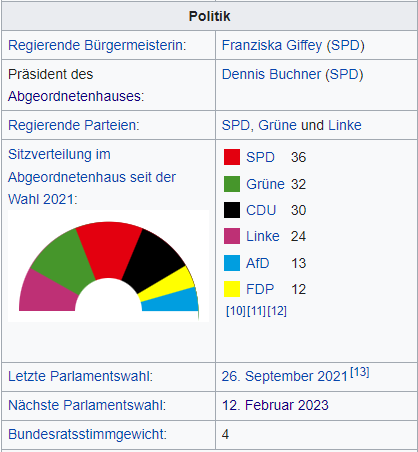Berlin's Polarized Voters
Berlin's Polarized Voters
The Frankfurter Allgemeine newspaper reported on February 14 about the recent election for seats in the House of Representatives in Berlin, Germany. Berlin had held this same election in 2021, but the election experienced numerous logistical problems, so that the Constitutional Court had to intervene and declare it invalid.
Numerous factors should make this election of interest to Americans--firstly because Germany and America have so much in common. The two nations have similar elected governments, similar governing philosophies, similar racial characteristics, as well as a concern for poorer or embattled nations, similar dissenting groups, and similar social divisions.
Germany, and Berlin in particular, also faces a crisis with social-integration caused by massive immigration and war-related relocations. Perhaps 36% of Berlin's population fits this profile, many with little or no knowledge of the German language. Thousands of Ukrainians have arrived in recent months aboard packed trains from war zones, after Russia began its invasion of their nation. One newspaper said that four million Ukrainians have fled to Germany,
Not surprisingly, Berlin's logistical networks, such as schools, hospitals and transport, have strained to the breaking point to provide for them. Berliners would rather spend tax money on revitalizing these networks, but have to instead provide for thousands more indigent new-arrivals. Most intend to remain in Germany, if they can. Americans need to take note of the similarities to our own situations--conflicts in neighboring countries and the floods of refugees arriving uninvited.
Back to the election in Berlin, Americans should also note one important difference to elections here. Germany typically fields candidates from six political parties. I wish it was five or seven. I have had an aversion to "six" since high school, after watching the British mini-series The Prisoner, starring Patrick McGoohan as Number 6: "I am not a number!" he roars. "I am a free man!!"
At any rate, Germany's political parties seldom get a clear majority and have to form coalitions with other parties, some of them in direct opposition with their party's stated positions. To move forward, they have to compromise and accept watered-down proposals that leave some wiggle-room for their opponents.
Even more important, note the arrows which show how many of Berlin's voters defected from their membership-party and voted for one of the opponents. If those defectors had voted for a candidate with a similar philosophy, I would not have minded that so much, but see how many voters from left-wing parties voted for their opposite the AfD. See how many Socialist voters elected the conservative candidates. More than anything, it reminds me of the scene in Shakespeare's Julius Caesar, where Brutus defends the assassination of Caesar, and Marc Antony denounces the assassins. The public sides with one. Just an hour later, the public switches sides. Seeing so many Berliners switch sides should concern American political parties, who also have to deal with wishy-washy voters.



